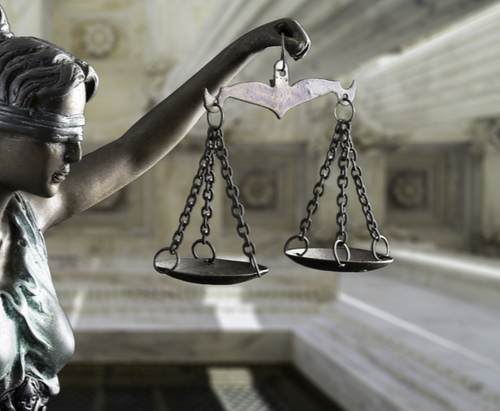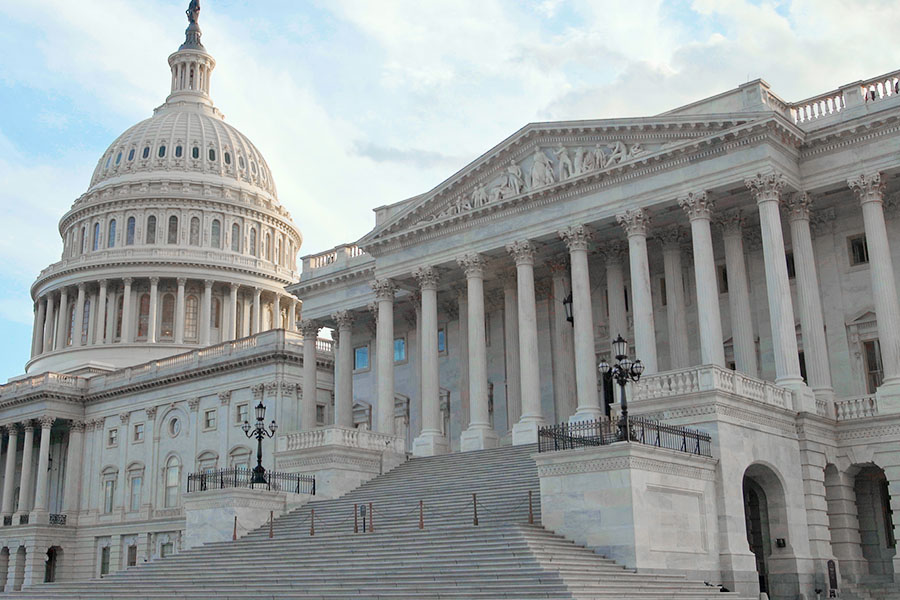Federal Rulemaking Update
Last updated July 19, 2024
Rules Update (July 2024)
Important Information on Final and Proposed Rule Changes from AAJ
Recently Approved Rule Changes
The following approved rule changes are expected to go into effect on December 1, 2025:
- FRCP 16.1 (Multidistrict Litigation) — Establishes a new rule to manage MDL proceedings, particularly to assist transferee courts in addressing a variety of important matters at the outset of the litigation, during an initial MDL management conference, including but not limited to the procedure for appointing leadership counsel, the method and timing of exchanging information about the factual bases for claims and defenses, and a proposed plan for discovery. An extensive Committee Note for MDL management accompanies the draft rule that should also be thoroughly reviewed. Read AAJ's formal comment here.
- FRCP 16(b)(3) & FRCP 26(f)(3) (Privilege Logs) — Modifies Rules 16 and 26 to call for the development of a method for complying with the privilege log requireents outlined in Rule 26(b)(5)(A) early in the litigation process. Read AAJ's formal comment here.
- FRAP 39 (Costs on Appeal) — Amends the existing rule to codify the Supreme Court’s holding in City of San Antonio v. Hotels.com, 141 S. Ct. 1628 (2021) that Rule 39 does not permit a district court to alter a court of appeals’ allocation of costs, including those costs that are taxed by the district court. The proposed rule change codifies this holding, providing that the allocation of costs applies to both costs taxable in the court of appeals and costs taxable in the district court.
Rules in Formal Comment Period
The Committee on Rules of Practice and Procedure approved two proposed rule changes for formal comment period in June 2024. AAJ will be providing additional information on how to submit comments and testify on the proposed amendments later this summer.
The formal comment period begins runs August 2024 to February 2025.
- FRAP 29 (Amicus Curiae Briefs) — Amends the existing rule to require individuals and organizations to seek leave of court to file an amicus curiae brief and require additional disclosures about the financial relationships between amici, parties, and non-parties.
- FRE 801(a)(1)(A) (Prior Inconsistent Statements) — Amends the existing rule to provide broader admissibility of a testifying witness’s prior inconsistent statements and eliminating language that currently restricts application of the hearsay exemption to prior statements made under oath at a formal proceeding.
Rules in Informal Comment Period
AAJ carefully tracks rules suggestions submitted to the Advisory Committees on Civil Procedure, Appellate Procedure, and Evidence, the policy making arm of the federal courts.
Below is a summary of AAJ’s informal rulemaking work on proposals that are currently being evaluated and drafted by the Advisory Committees. Although these rules have not yet been submitted for formal comment, they have garnered the attention of their respective committees, which are considering possible amendments. AAJ often submits informal comments and facilitates discussions with attorneys, scholars, and judges to advocate for the interests of our members and the plaintiffs they represent.
Advisory Committee on Civil Rules
The Advisory Committee on Civil Rules has appointed numerous subcommittees to address rules proposals. AAJ expects drafts of the proposed rules, and their accompanying committee notes, to be available and discussed at the October 2024 Civil Rules meeting, with several proposals expected to go to formal rulemaking in August 2025. Current civil rules subcommittees include:
- The Rule 41 Subcommittee, chaired by Judge Cathy Bissoon (W.D. Pa.), is determining whether Rule 41 should be amended to resolve a Circuit split. Some Circuits follow the literal language of the rule requiring that the entire “action” be dismissed by the plaintiff, while other circuits allow the plaintiff to dismiss one or more claims within the action. AAJ members met with the Rule 41 Subcommittee informally in May 2023 and shared their views that permitting the dismissal of claims rather than actions would benefit plaintiff attorneys bringing civil rights, mass tort, and other claims where there are many defendants or plaintiffs for whom the determination of whether they should be part of the litigation could not be made prior to discovery.
- The Discovery Subcommittee, chaired by Judge David Godbey (N.D. Tex.), recently completed its work on privilege logs and is now turning its attention to several possible rule amendments related service of subpoenas and filings under seal. The Discovery Subcommittee met with AAJ in May 2023 to discuss possible amendments to Rule 45 to make it easier to serve a subpoena, particularly in gated communities or other locations where physical barriers make it easier for litigants to avoid service.
- The Rule 7.1 Subcommittee, chaired by Texas Supreme Court Justice Jane Bland, is examining expanded disclosures by corporate parties, with a draft amendment expected in October 2024. The Rule 7.1 Subcommittee has not yet met with AAJ members, but AAJ previously supported a 2022 amendment to Rule 7.1, which helped address the issue of unknown ownerships of LLCs resulting in late removals or remands in diversity jurisdiction cases.
- The Cross-Border Discovery Subcommittee, chaired by Judge Manish Shah (N.D. Ill.), is examining whether changes are needed to the federal rules to address issues that arise with cross-border discovery. Judge Michael Baylson (E.D. Pa.) submitted a proposal to the Advisory Committee suggesting that it consider a rule change to specifically address crossing border discovery. The Cross-Border Discovery Subcommittee will meet an AAJ working group comprised of members from the United States, Canada, and Europe, during the 2024 Annual Convention to discuss topics of concern in international discovery and whether a rules-based solution is necessary.
- The Remote Testimony Subcommittee, chaired by Judge Hannah Lauck (E.D. Va.), was appointed in April 2024 to review a rule suggestion submitted by Hagens Berman and other plaintiff-side firms to allow for remote testimony during trials and hearings. The specific proposal is for amendments to Rule 43(a) (criteria for permitting remote testimony) and Rule 45 (authorizing a subpoena to compel a witness to report to a remote location to give live testimony).
Other proposed civil rules amendments that are currently being discussed, but which have not yet been assigned to a particular subcommittee include:
- Rule 81(c)(3)(A) — Demand for Jury Trial in Removed cases. It was brought to the Advisory Committee’s attention that a 2007 style change to Rule 81(c)(3)(A) changed a verb tense in a way that might now be read to say that no demand need be made after removal unless the federal court so orders in the case if the time to make a demand in state court had not yet arrived. One proposal is to undo the 2007 change. An alternative proposal would require a demand under Rule 38 in every removed case without regard to state-court practice unless a demand was made prior to removal.
- Use of the Word “Master” in the Rules — The ABA has requested a change in the FRCP from the word “master” to a “court appointed neutral” in light of the history of slavery associated with the term.
Advisory Committee on Evidence Rules
The Advisory Committee on Evidence Rules has one proposed amendment that will be in a formal comment period starting in August 2024 on prior inconsistent statements. There are also a number of rules in informal comment period, including artificial intelligence, which has been the subject of two half-day symposiums at its fall 2023 and spring 2024 meetings. The Evidence Committee will be getting a new chair this fall so it’s possible that priorities could shift.
- FRE 609(a)(1) (Impeachment by Evidence of a Criminal Conviction) — The Advisory Committee on Evidence Rules is considering a proposal to eliminate this rule which allows impeachment of witnesses with felony convictions that do not involve dishonesty or false statements. AAJ submitted a letter during informal rulemaking in support of this proposed rule as did other organizations. However, the Department of Justice is opposed to the change. A proposed amendment may encourage victims and witnesses to testify at civil trials.
- *NEW* FRE 416 (Evidence of an Alleged Victim’s Prior False Accusations) — The Advisory Committee received a proposal from a law professor to address false accusations of sexual misconduct. The Committee is researching how states handle false accusations before deciding what to do. If the Committee does decide to move a draft forward, there are many organizations likely to join AAJ in opposition to such a rule.
- Artificial Intelligence — The Advisory Committee on Evidence Rules is considering many possible amendments to address the use of AI in evidence and has held two panel discussions—one in Fall 2023 and one in Spring 2024—to examine the issues and possible solutions. The Committee has not yet decided whether to move a rule change forward and is continuing to consider both whether a rule change is warranted, and if so, how to draft an amendment that keeps up with technology. Some options under consideration include:
- Amending FRE 902(13), which allows for authentication of electronic evidence by affidavit;
- Amending FRE 901(c) to reallocate authority to the court to determine the authenticity of audiovisual evidence;
- Amending FRE 901(b), which requires the proponent to produce sufficient evidence to corroborate digital information; or
- Creating a *NEW* rule to address artificial intelligence specifically.
Joint Subcommittees
When a proposed amendment could affect more than one set of federal rules, the Standing Committee often appoints a joint subcommittee comprised of reporters and judges from each Advisory Committee to evaluate the suggestion and potentially draft a rule that will be published for public comment.
- Unified Bar Admission — The Joint Subcommittee on Attorney Admission is considering a proposal from GWU Law Dean Alan Morrison and others to make admission to the bars of the federal district courts more uniform by creating a unified system of bar admission for all federal district courts.
- Privacy Rules — In 2022, the Standing Committee appointed a working group of reporters from each Advisory Committee to discuss a suggestion by Sen. Ron Wyden (D-OR) to reconsider whether to require complete redaction of social security numbers (SSNs) in federal court filings. This work has expanded to include several other privacy issues, including a DOJ proposal to better protect minors under existing rules by using pseudonyms rather than initials in court filings. AAJ and the National Crime Victims Bar Association (NCVBA) filed a joint letter in support of the proposal and encouraged the advisory committees to consider the use of gender-neutral pseudonyms and pronouns.
Please contact Sue Steinman (susan.steinman@justice.org)
or Kaiya Lyons (kaiya.lyons@justice.org) with any questions.




